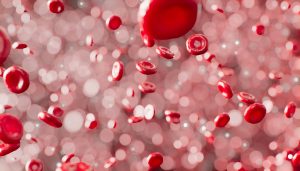
Massage, as well as helping relax tense muscle tissue, also works on the lymphatic and blood circulation systems.
While having a massage is often seen as a pampering experience it is important for your therapist to ask questions about any health conditions you may have and medication you are taking.
This can have a significant impact on the pressure and techniques used. If you have high blood pressure, for example, you do not want to be having a deep, vigorous massage. This is because it can put extra strain on the blood vessels and heart. Instead, slow strokes with less pressure will be more appropriate.
Should I have a massage when I have a cold?
Definitely not. Massage stimulates the lymphatic system – which, when you’re feeling well, can be beneficial in helping improve lymph flow and removing metabolic waste from the body.
However, if you have inflammation in the body, your lymph nodes may already be swollen and under pressure so we don’t want to add to that. Having a massage when you feel unwell can actually make you feel worse and take you longer to recover. You also don’t want to pass a cold on to your therapist.
What is exactly is the lymphatic system?
The lymphatic system is very important. It supports the body by:
- Fighting infection
- Balancing fluid in the body to prevent tissue swelling
- Aiding fat absorption during digestion
- Helping fluid circulation
- Removing waste products, bacteria and damaged cells. The liver and kidneys will then remove these waste products from the blood. The body gets rid of this waste when you go to the toilet
- Returning extra fluid to the blood system (which is why you may feel thirsty after having a massage. Drinking water will help to replace these fluids)
Have you ever found your stomach rumbles while having a massage?
This can be down to the effect of both the body relaxing and as blood flow increases to the digestive organs.
So when you're feeling well, massage can be really helpful in supporting the role of the lymphatic and blood circulatory systems. In sports massage, muscle tissue repair is aided as the therapist works to help flush out toxins from the injured area, and stimulate blood flow to help the tissue heal.
A qualified massage therapist, like myself at Wellness Lincs, will also hold qualifications in anatomy and physiology, which is so important to help provide the best care and treatment to our clients.
Zoe
